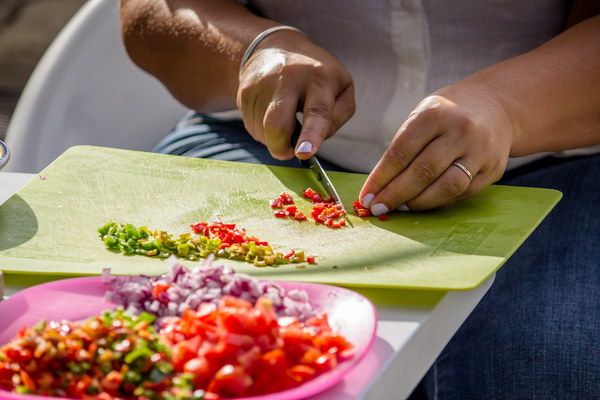Nurturing Recovery A Comprehensive Guide to Caring for a Fractured Kidney
Introduction:
A fractured kidney can be a daunting diagnosis, but with proper care and attention, you can speed up recovery and prevent complications. This article provides a comprehensive guide to caring for a fractured kidney, covering essential aspects such as pain management, diet, medication, and lifestyle changes.
1. Pain Management:
Pain is a common symptom after a kidney fracture. To manage pain effectively, it's essential to work closely with your healthcare provider. Here are some pain management strategies:
a. Medication: Over-the-counter pain relievers like acetaminophen or ibuprofen can help alleviate pain. However, avoid nonsteroidal anti-inflammatory drugs (NSAIDs) as they may increase blood pressure and affect kidney function.
b. Heat and Cold Therapy: Applying a warm compress or heating pad to the affected area can help relax muscles and reduce pain. Alternatively, a cold pack can numb the area and reduce inflammation.
c. Physical Therapy: A physical therapist can teach you exercises to improve mobility and reduce pain, ensuring a smooth recovery process.
2. Diet and Hydration:
A well-balanced diet and proper hydration are crucial for kidney recovery. Consider the following dietary guidelines:
a. Low Sodium: Excess sodium can lead to fluid retention and increased blood pressure, which can strain the kidneys. Opt for low-sodium foods and avoid processed foods, salt, and high-sodium condiments.
b. Low Protein: High protein intake can put extra strain on the kidneys. Choose lean proteins like poultry, fish, and legumes, and limit red meat and dairy products.
c. Hydration: Drink plenty of fluids to support kidney function. Aim for at least 8-10 glasses of water per day, depending on your doctor's recommendations.
3. Medication:

It's essential to take all prescribed medications as directed by your healthcare provider. Some medications may include:
a. Antibiotics: If an infection is present, antibiotics may be prescribed to treat the infection.
b. Diuretics: These medications help remove excess fluid and reduce swelling in the kidneys.
c. Blood Pressure Medications: If you have high blood pressure, medication may be necessary to control it and reduce the strain on your kidneys.
4. Lifestyle Changes:
Adopting a healthy lifestyle can aid in your kidney recovery. Consider the following changes:
a. Exercise: Regular physical activity can improve overall health and promote healing. Consult with your healthcare provider to determine the appropriate exercise level for you.
b. Avoid Smoking and Alcohol: Smoking and excessive alcohol consumption can worsen kidney function and delay recovery.
c. Stress Management: Stress can affect kidney health and recovery. Practice relaxation techniques like meditation, deep breathing, and yoga to manage stress levels.
5. Follow-Up and Monitoring:
Regular follow-up appointments with your healthcare provider are crucial to monitor your kidney function and adjust treatment as needed. They may order blood and urine tests to assess kidney function and detect any complications.
Conclusion:
Caring for a fractured kidney requires patience, dedication, and a proactive approach. By managing pain, following a healthy diet, taking prescribed medications, making lifestyle changes, and monitoring your recovery, you can enhance your chances of a successful recovery. Always consult with your healthcare provider for personalized advice and guidance throughout the healing process.









